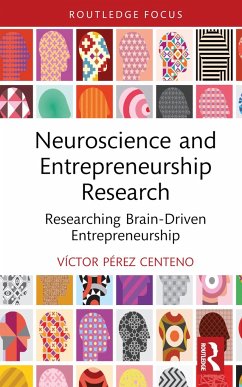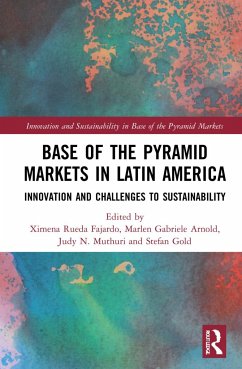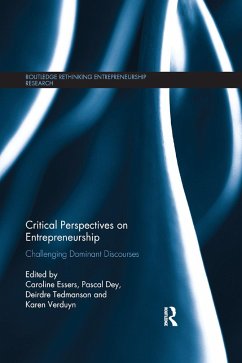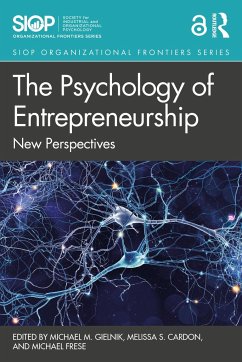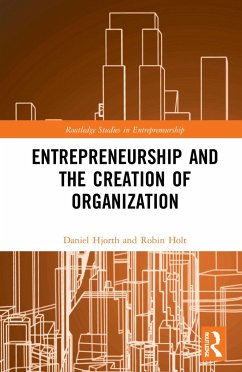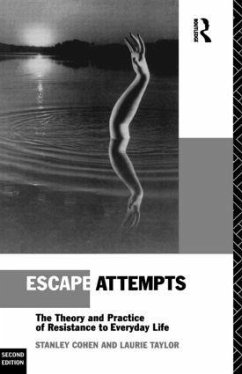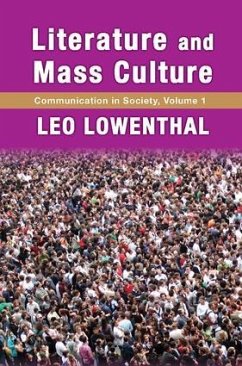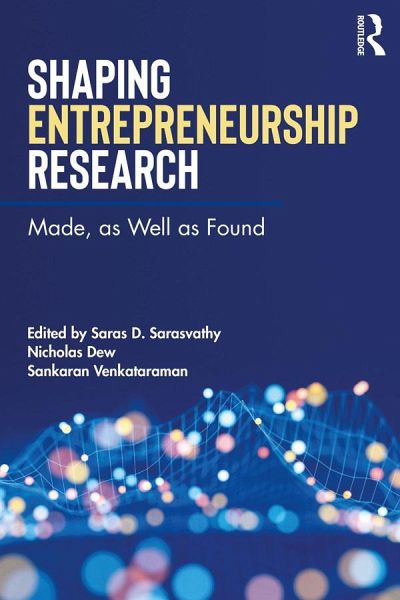
Shaping Entrepreneurship Research
Made, as Well as Found
Herausgegeben: Sarasvathy, Saras; Dew, Nicholas; Venkataraman, Sankaran

PAYBACK Punkte
33 °P sammeln!
Shaping Entrepreneurship Research: Made, as Well as Found is a collection of readings designed to support entrepreneurship research. Focused on a worldview in which the future is open-ended and shapeable through human action - i.e. "made", this collection reframes entrepreneurship as a science of the artificial rather than as a natural or social science. It posits an open-ended universe for the making of human artifacts even if large swathes of nature and society are not within the control of the people making them.The book explores the notion of "made" through 25 foundational readings - class...
Shaping Entrepreneurship Research: Made, as Well as Found is a collection of readings designed to support entrepreneurship research. Focused on a worldview in which the future is open-ended and shapeable through human action - i.e. "made", this collection reframes entrepreneurship as a science of the artificial rather than as a natural or social science. It posits an open-ended universe for the making of human artifacts even if large swathes of nature and society are not within the control of the people making them.
The book explores the notion of "made" through 25 foundational readings - classics from the history of ideas. Organized into five sections, each classic is individually introduced by the editors in one of five chapters written to explain its relevance and significance for a "made" view of entrepreneurship. Readers will benefit from exposure to these classic ideas and ongoing research in a variety of areas that fall somewhat outside the line-of-sight of traditional entrepreneurship research. Both individually and collectively, the readings suggest opportunities to ask new questions and develop new ways of framing entrepreneurship research that carry the discussion beyond worlds found to worlds made as well as found.
The book is crafted to be valuable to three groups of scholars: young scholars with limited or no access to research infrastructure but with a desire to participate in deep conversations; young scholars with access to research infrastructure who also desire to listen-in on a different kind of conversation; and established entrepreneurship scholars who are contemplating an alternative set of foundational ideas to support their conversations in the discipline.
The book explores the notion of "made" through 25 foundational readings - classics from the history of ideas. Organized into five sections, each classic is individually introduced by the editors in one of five chapters written to explain its relevance and significance for a "made" view of entrepreneurship. Readers will benefit from exposure to these classic ideas and ongoing research in a variety of areas that fall somewhat outside the line-of-sight of traditional entrepreneurship research. Both individually and collectively, the readings suggest opportunities to ask new questions and develop new ways of framing entrepreneurship research that carry the discussion beyond worlds found to worlds made as well as found.
The book is crafted to be valuable to three groups of scholars: young scholars with limited or no access to research infrastructure but with a desire to participate in deep conversations; young scholars with access to research infrastructure who also desire to listen-in on a different kind of conversation; and established entrepreneurship scholars who are contemplating an alternative set of foundational ideas to support their conversations in the discipline.






